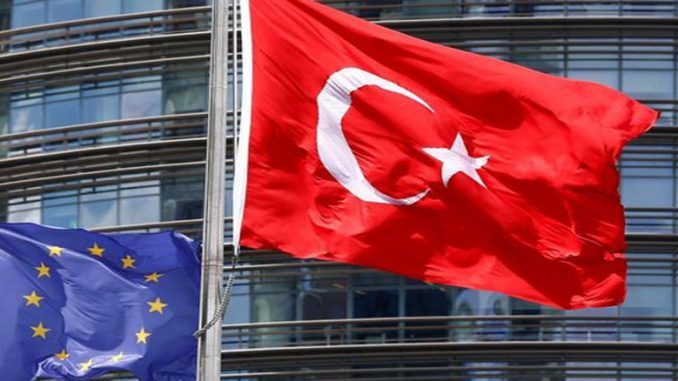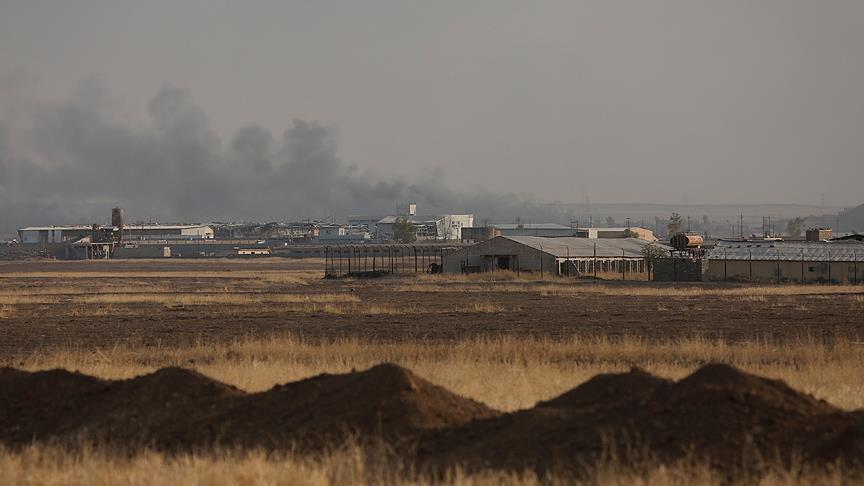
Following PACE’s decision to re-open the monitoring procedure in respect to Turkey, opposing voices have been raised among the bloc’s countries. While some officials advocate a stricter attitude toward Ankara, others urged a more constructive approach
The variant discourse and different voices of European politicians reflect the EU’s inconsistent strategy on Turkey as the relations between Ankara and the bloc have been carrying on a shaky ground particularly after the EU failed to keep its promise to Turkey regarding the migrant deal and the lack of support after the failed July 15 coup attempt.
The controversial Organization for Security and Co-operation in Europe (OSCE) report on Turkey’s constitutional referendum seriously harmed already strained relations, as some contributors of the report, including German Left Party (Die Linke) lawmaker Andrej Hunko and Danish Enhedslisten party Nikolaj Villumsen, Parliamentary Assembly of the Council of Europe (PACE) observers in the referendum, were revealed as sympathizers of the PKK terrorist organization and actively worked for the “no” front during the referendum campaign.
The issue led to a new crisis between Ankara and the bloc, and Turkish politicians slammed PACE’s choice of PKK sympathizers deputies to observe and write a report.
After exchanged criticisms between Turkey and the EU, PACE decided to reopen the monitoring procedure in respect to Turkey, which has been under post-monitoring dialogue since 2004 during its Spring Part Session on April 25. Turkey condemned the decision and said it had been made with political motives.
However, comments by European politicians on Turkey reflect the EU’s non-consistent road-map for Turkey and different voices have been raised regarding what should be the next step against Ankara.
European Parliament’s (EP) Turkey rapporteur Kati Piri called on the EU to immediately suspend Turkey’s accession negotiations if Ankara does not pledge to refrain from applying the changes stated in the constitutional package approved by the public in the April 16 referendum.
“Turkey cannot join the EU with this constitution,” she said, adding that it is not in accordance with the Copenhagen criteria.
However, German Chancellor Angela Merkel yesterday urged “constructive dialogue” between the EU and Turkey, and turned down opposition calls to suspend Turkey’s EU membership talks or end to cooperation with Ankara.
Addressing lawmakers in the German parliament on Thursday ahead of an EU leaders summit in Brussels, Merkel said recent political tensions have “severely hit” EU-Turkey relations, as well as relations between Germany and Turkey.
“An irreversible departure of Turkey from Europe, and also Europe from Turkey, which I would like to say with caution, would be neither in the interest of Germany, nor that of Europe,” she stressed.
Likewise Chancellor Merkel, European Commissioner for Neighbourhood Policy and Enlargement Negotiations Johannes Hahn Wednesday urged EU members to devise a “more rational strategy” to be able to work with Turkey in areas of interest, following the recent tensions.
Speaking at the Plenary Debate of the European Parliament on the State of play in Turkey, Hahn said it is important for the EU to come up with a new way to work with Turkey.
Hahn also highlighted that business as usual is not an option anymore and that they should also avoid artificial debates.
On the other hand, Hungarian Prime Minister Viktor Orban urged the EU to support stability in Turkey.
Speaking at a press conference after his speech at the EP session on Wednesday, Orban said he congratulated Turkish President Recep Tayyip Erdoğan after the referendum result, emphasizing importance of Turkey’s stability in regards to Europe.
“We should support those who can maintain stability in Turkey. If Turkey would not have stability, we will get into trouble soon,” he said.
Orban added that contrarily, all regions will turn into a complete mess and Europe will be faced with “unbearable pressure.” “That’s why I support Erdoğan in creating a steady political atmosphere in Turkey,” he concluded.
Meanwhile, earlier this week, Greece drew attention to the well-functionality of the migrant deal and said that Turkey is holding up its end of a deal designed to reduce migration to Europe, citing a continually low rate of arrivals.
An average of 36 people have arrived on the Greek islands since the beginning of April, having taken the perilous sea route from Turkey across the Aegean Sea, according to the country’s Refugee Crisis Management Coordination Body.



